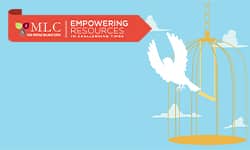Joseph vs. Marx
With the Dow climbing this week to new heights, creating a measure of euphoria in some circles profiting from these record breaking increases, it seems like an appropriate time to take a closer look at wealth in general and the future of our economy in particular.
Whenever prosperity strikes, most people take things for granted; they dig their heads in the ground and reap their riches, forgetting about tomorrow as they indulge today. But the wise and prudent ones step back and take a sober — and birds eye — look at the transpiring circumstances, in an attempt to discern the broader unfolding patterns, and to forecast what lies ahead.
Especially considering that today’s growth is happening, strikingly, in — and in stark contrast to — a climate of upheaval shaking everything from the Middle East and Europe via terrorism, to Russia and Iran via increased power mongering, to the USA via confrontations with the police and racial divides (just to mention a few).
This week’s portion, therefore, couldn’t come at a better time. In it we read about the first documented accumulation of massive wealth — the Biblical equivalent of today’s Dow Index — by the first ever superpower: Egypt. At the helm of this effort, steering it to tremendous success, was the first ever documented CEO: Joseph.
Allow me to submit the following theory: A study of Joseph in Egypt will give us a powerful forecast for the future of business in America and the world. Understanding Joseph will help us understand today’s economy, and ways to create certainty in uncertain times.
A fascinating way to appreciate Joseph is by contrasting him with his polar opposite: Karl Marx. (The best way to appreciate anything is to compare it to its opposite. Light is appreciated far more through darkness).
*
In his scathing critique of capitalism, Marx brilliantly describes how the Capitalist system devalues the worker, reducing him to no more than a commodity, thus leading to mans’ inevitable alienation and estrangement from his essential self. “Labor is external to the worker, i.e. does not belong to his essential being; that he, therefore, does not confirm himself in his work, but denies himself, feels miserable and not happy, does not develop free mental and physical energy, but mortifies his flesh and ruins his mind. Hence, the worker feels himself only when he is not working; when he is working, he does not feel himself. He is at home when he is not working, and not at home when he is working. His labor is, therefore, not voluntary but forced, it is forced labor. It is, therefore, not the satisfaction of a need but a mere means to satisfy needs outside itself” (Paris Manuscripts, 1844).
Marx asked all the right questions; he just didn’t have the answers, as we retrospectively know today after the failure of the Socialist and Communist experiments. He highlighted the flaws of capitalism without ever really providing a viable alternative.
Reading this week’s Torah portion I was thinking how Joseph, the first “Capitalist,” would respond to Marx. Joseph was faced with this very dilemma. His fathers chose to be shepherds, thus avoiding confrontation with a corrupt marketplace, allowing them to discover their true essence while meditating among nature as the docile sheep grazed in the fields. Joseph, however, was thrust into Egypt, first becoming an accountant (yes, there you have the first Jewish accountant) in the house of Potiphar, and then becoming the viceroy of Egypt, running the entire grain business of the land.
When Joseph’s brothers and then Jacob reunited with Joseph the first thing they recognized was that despite the formidable challenges he faced for 22 years, he had not in any way compromised his profound spiritual connection. The first words Joseph utters to his brothers, as he is no longer able to control his emotions: “I am Joseph! Is my father still alive? I am Joseph your brother!” Joseph sends a sign to his father that he is intact by telling him the topic in Torah (the laws of the eglah arufah) they were discussing 22 years ago when they were separated!
How did Joseph maintain his spiritual integrity – his connection with his essence – even while hard at work, in a corrupt Egypt at that?
Over all that transpired during these years Joseph never lost his connection to G-d. As harsh as it was to accept that his brothers sold him into slavery, Joseph never became bitter and was never broken. He always knew that his arrival in Egypt and the work he did there was G-d’s plan. As he tells his brothers: G-d sent me ahead of you to insure that you survive in the land and to sustain you through great deliverance. It is not you who sent me here, but G-d. He has made me Pharaoh’s vizier, director of his entire government and ruler of all Egypt.
As immersed as Joseph was in the massive Egyptian grain industry, he did not experience alienation or estrangement, because his work was not something external outside of himself; he saw it for its true nature: Divine work, as part of his Divine essence and mission in this world: to save lives, to insure the survival of his family and ultimately the entire Jewish nation. Arriving first in Egypt allowed Joseph to prepare the ground so his family could survive the great famine; it allowed the Jewish nation to be born – fulfilling G-d promise and vision to Abraham.
Throughout all his work as head of state and ruler of Egypt, Joseph never let go of the vision; he always held on to the promise; he was eternally connected to the Divine process, always recognizing the deeper spiritual meaning of his work as director of the grain industry – the biggest business of its time.
Joseph had to first be leader before Judah could become leader, because Joseph had the unique power to integrate spirit and matter in an imperfect world where materialism dominates. Joseph begins preparing the ground for a more perfect world when Judah’s faith and bittul could dominate (see The Selling of Joseph).
The message and lesson to us today is clear:
America today is suffering from some of the flaws of Capitalism that Marx describes. Joseph can teach us how to get back on course.
The unprecedented prosperity of this nation has spoiled us. We have built the greatest empire in history, with the highest standard of living, and the most powerful technologies.
Everything seemed to be going so well. The unheard of economic boom, the information revolution, the unbelievable advances in medicine and science, promised to deliver a new world order. Consumption – mass consumption, enabled by mass industry – became the dominating driving force in our consumer driven economy.
But this great corporation lost its soul somewhere along the way. American business forgot its true mission statement.
The mission statement of this country was defined by the Founding Fathers 238 years ago when they established this great nation. They engraved it on the currency of this nation: In God We Trust.
By studying different systems and their failures, by personally experiencing the consequences of being denied basic human freedoms, by building this country’s pillars not on their own subjective whims but on eternal values rooted in the Bible – the Founding Fathers understood that the grand American experiment is only possible with a firm foundation that absolutely guarantees individual rights. (On Two Wings by Michal Novak is an excellent book on this topic).
And they fought the Revolutionary War to defend this mission stated in the Declaration of Independence: “We hold these truths to be self-evident, that all men are created equal, that they are endowed by their Creator with certain unalienable Rights, that among these are Life, Liberty and the pursuit of Happiness. That to secure these rights, Governments are instituted among Men, deriving their just powers from the consent of the governed.”
A nation built on the principle that “All men are created equal” as “One nation under God” created the best business climate to allow this nation to flourish. With its promise of freedom and equal opportunity, the United States has welcomed people from all over the world and encouraged them to contribute to the growth of this country.
And flourish it did. The investment of the Founding Fathers paid off. The synergy of people from all backgrounds coming together as equals under God created the highest developed country of all time.
For 238 years our mission statement – the principles of the revolution – has never been challenged. Indeed, our sustained prosperity has given rise to a profound complacency. Now, over two centuries later, this nation has been issued the greatest challenge it has ever faced.
Does wealth assure happiness? Some may deny this statement, but many agree that some of the most miserable and lonely people on earth are the wealthiest among us. Can someone of enormous means have real friends, without fear that the friendship is tainted by his wealth?
Today it is becoming obvious that we have taken for granted many of the freedoms and blessings that were contained in the vision of our founding fathers. Our newfound vulnerability and deep feelings of uncertainty expose more than ever the emptiness of financial security. It makes us realize how alienated we become when we our jobs and careers become an end in themselves, divorced from their deeper mission statement: an expression of our souls.
We are locked in a struggle to renew our contract with the soul of our nation. In many ways we now are faced with the formidable task of finishing what our founding fathers began.
One cannot be sure whether the Founding Fathers saw in Joseph the model businessperson and CEO paragon, but their extensive knowledge of the Bible definitely could not ignore Joseph’s critical contribution to balancing business and spirituality, Capitalism and compassion, matter and spirit.
Joseph offers us a new business model, a new paradigm – one that integrates our work with our essence. By recognizing that our careers and businesses are means and vehicles to fulfill G-d’s plan in our lives, we can reclaim the core beliefs that are the secret of the nation’s endurance.
But with all that Joseph accomplished, he was also fully aware of the sad reality to come. When he meets his younger brother Benjamin, he weeps over the destruction of the Holy Temple. Additionally, his descendants would split away from the Kingdom of Judah. Both these fracturing events would have profound implications in the split between matter and spirit and between work and the human essence.
Today we are faced with the challenge to finally and permanently mend the fracture. By reconnecting our material lives, our businesses with their true spiritual mission statement.
Let us learn from Joseph how this can be achieved.
The United States now stands at perhaps the most defining moment of its history. We need to fight a war that goes far beyond the military one. This is not a war against. It is a war for: For the fundamental beliefs that this nation was built upon. Our greatest enemy is not terrorism; it is complacency.
We must balance our economy of consumption with higher values. Let us learn from Joseph how to reclaim our mission statement: What are we? Who are we? What is this company called America?
New paradigms are always difficult. That’s why they are new.








What a wonderful article. Many of my dearest friends are struggling with depression just as they hit the age of early retirement. They had successful careers and lived the high life even while they were ALSO engaged in meaningful pursuits. They lacked integration however. Their material success lacked soul and purpose.
We have descended into a state of narcissism, worshiping the work of our own hand, accumulating wealth and power for self serving. This is the essence of idolatry. Wealth disparities and the resultant alienation and fracturing the community is not in keeping with Torah values. Corners of the field mitzvah is the spirit to which we are commanded.
May we find our way as Joseph did when wandering lost in the wilderness.
You have done a wonderful job and service discussing our present day and historical dilemma. Unfortunately (not to be a pessimist) the link between money and our electoral process has doomed us to oblivion and the Supreme Court of the USA affirmed this link by equating money with freedom of speech in financing of elections. Monied interests rule rather than the power of ideas and debate. While monied interests can do good things, unfortunately the opposite takes priority much too often with the results you have described.